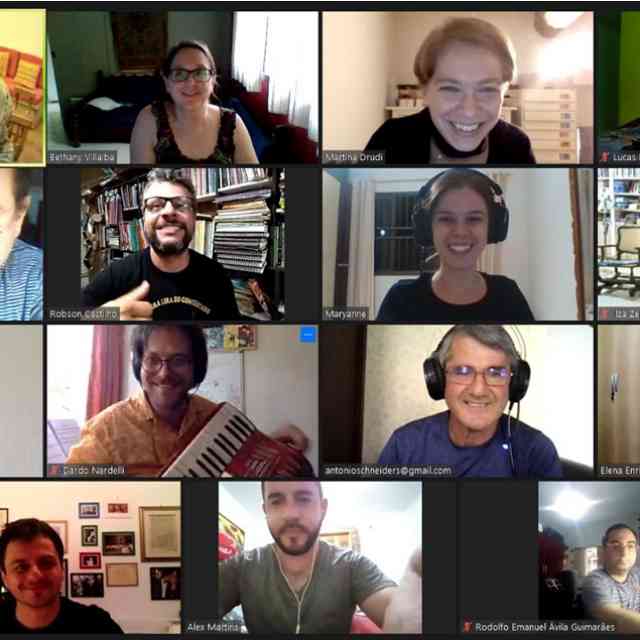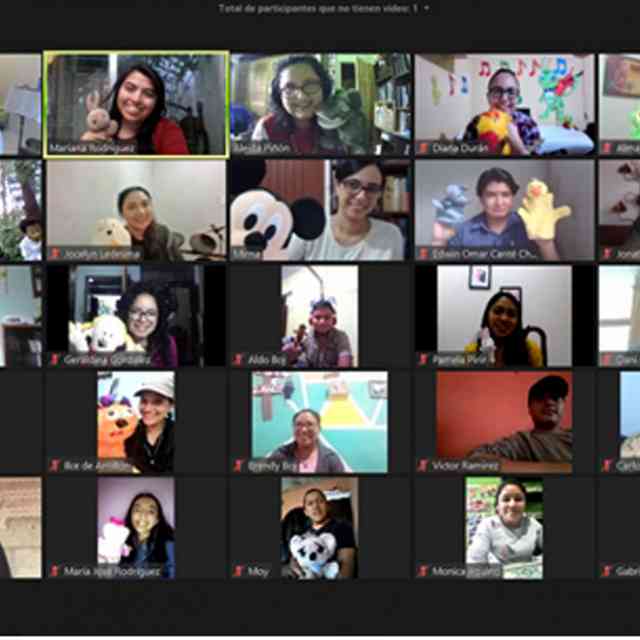Leer en español | Leia em Português
The Latin American Country Associations Committee is pleased to inform an important meeting that took place on March 19th. During the meeting, the discussions were related to the improvement of communication with the SAA, and the need to define some points about Teaching Strategies Course in Latin America. In addition, representatives of the Suzuki Associations of Brazil, Peru and Mexico shared their experiences on the functioning of their national associations; teachers from the Associations of Guatemala and Ecuador were present.
The first topic discussed was the need to refine communication with the SAA, in order to guarantee more effective work within national associations. We believe that better communication will also strengthen working relationships at all levels of the SAA. The characteristics of online courses, for example, was one of the points discussed, since the national associations have been involved in maintaining the standards presented by the SAA. Therefore, it is essential to receive official and updated documents from the SAA whenever there is a change in any article. This will ensure that all courses are offered equally across the continent.
The next topic discussed briefly focused on the need for a collective positioning by teacher trainers in Latin America on the functioning of the Teaching Strategies Course linked (or not) to book courses.
Then, the associations from Brazil, Peru and Mexico shared their experiences regarding the following points:
- Difficulties presented when forming an Association.
- Important characteristics for the maintenance of the Association.
This important contribution is a fundamental part of the Committee’s axis of action, which consists of offering mentoring to other countries that wish to form a Suzuki Association in their territory. Some important aspects shared were:
- One of the major challenges in forming an association is related to registration processes, maintenance costs and requested official documents; all requirements in this regard must be very clear.
- Once the association is formed, the leaders must develop strategies to motivate people to join it, sharing the benefits and the importance of the country having an Association.
- One of the main challenges is that leaders of an Association must constantly train new leaders who can continue with all the work carried out.
- It is essential that those who participate and run an Association have the view that problems are not obstacles, but opportunities to continue improving collectively, as the activities are carried out for the benefit of the Suzuki Community in their country and in Latin America.
- Altruism and thinking about the common good are one of the main characteristics of the work of those who run an Association.
We remind all Suzuki teachers in Latin America that you can access the SCHOLARSHIPS provided by the Suzuki Association of the Americas; the next deadline to register is APRIL 1st.
We renew the most cordial invitation to all Latin American countries that work with the Suzuki Method to send information about all the actions they have been carrying out (organization of their associations, events and activities that are being programmed, etc.) in order to share them in the following posts. This information can be sent to the email: [javascript protected email address]








